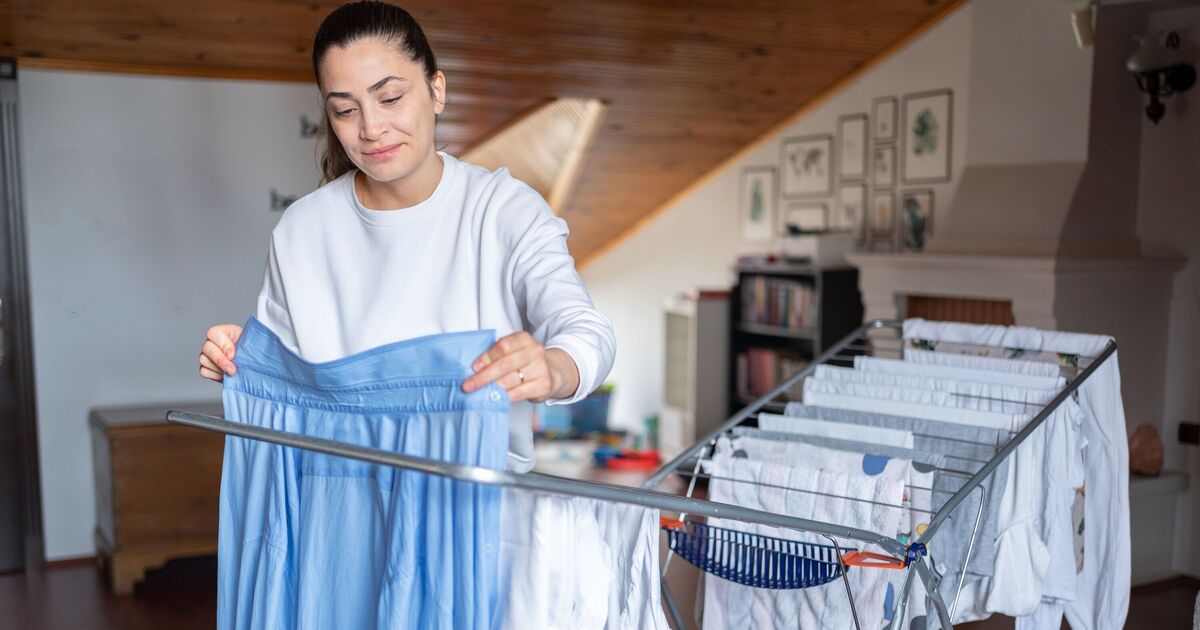There’s nothing more frustrating than pulling out a freshly clean laundered outfit only to find it smelling musty and feeling damp.
However, this is a common issue many homes grapple with during the autumn and winter months.
If any moisture lingers after drying, garments will give off a damp odour even when they’re fully dry and can even lead to mould in homes.
In the summer, laundry can be swiftly dried cost-free outdoors on the washing line, but as the weather turns wetter, indoor clothes drying becomes a tougher task.
However, one mum who was all too familiar with this problem devised a brilliant solution that not only reduces drying time but also saves you money.
TikTok user Christina Jacobs shared a video on her account @chrissy. jxx, demonstrating a laundry drying trick that doesn’t require a dehumidifier, tumble dryer or central heating.
She captioned the video: “The only way to dry my clothes in winter without that horrible damp smell.”
Christina begins by loading her laundry onto an airer and draping a bed sheet over the lot.
Next, she plugs in a small electric heating fan, positioning it directly in front of the airer laden with clothes and covered by the bed sheet.
The concept behind this hack is that the bed sheet captures the heat from the heater, enabling the clothes to dry rapidly.
The mum noted that using this method, the clothes dry in one and a half hours and makes them “smell great”.
Responding in the comments, one TikTok user suggested that there’s a superior device to use instead of an electric heater – a dehumidifier.
@permanentroses recommended: “A dehumidifier is better, if you dry in a smaller room and close the doors it works great.”
Turning to a dehumidifier can significantly cut down on the humidity around your damp attire.
This nifty method speeds up evaporation from your garments, slashing the drying time.
Not only that but using a dehumidifier also stops mould from taking up residence on your walls and ceilings where you air your laundry.
What’s even better, running a dehumidifier often costs less than using electric heaters, making it a savvy move for those looking to trim their energy expenses.












